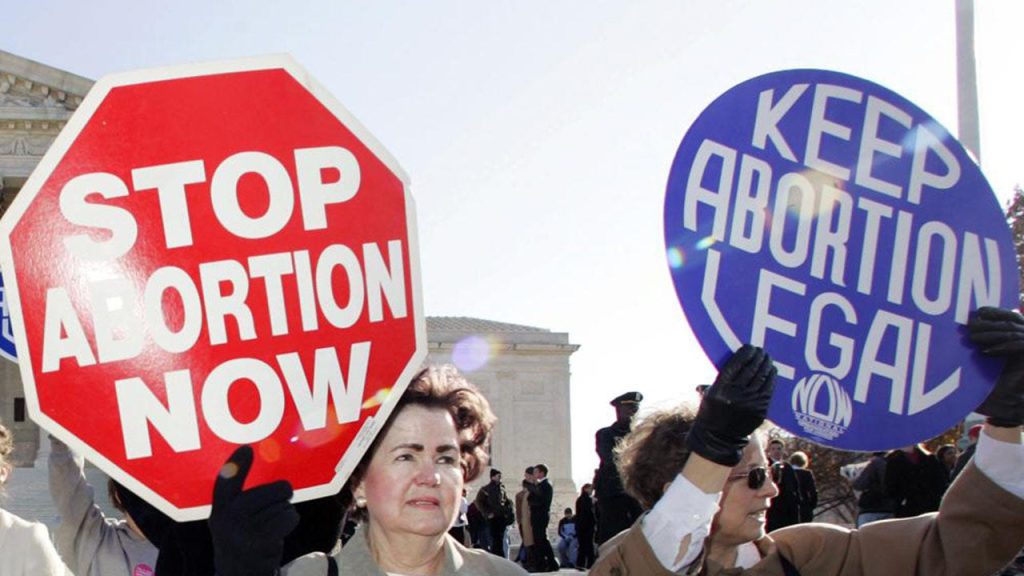Iowa’s six-week abortion restriction officially took effect on Monday after pro-abortion groups’ efforts to block the law failed in court. Governor Kim Reynolds, a Republican, has been fighting to enforce the law since she signed it last year. The legislation bans nearly all abortions after the detection of a heartbeat, which typically occurs around six weeks into pregnancy. However, there are exceptions for cases of rape, incest, fetal abnormality, and when the life of the mother is in jeopardy. The ACLU of Iowa, Planned Parenthood North Central States, and the Emma Goldman Clinic immediately launched a blocking effort, but the state Supreme Court allowed the law to take effect on Monday.
In response to the six-week abortion restriction in Iowa, pro-abortion groups have bolstered their resources in neighboring states such as Minnesota. Planned Parenthood is now offering medicinal abortion assistance just across the Iowa border in Mankato, Minnesota, and remodeling its larger facility in Nebraska. Minnesota Lt. Gov. Peggy Flanagan toured an abortion provider facility about an hour from the Iowa border, stating that Minnesota is committed to serving people traveling from other states seeking abortions. She encouraged those who are afraid to come to Minnesota, saying, “We’ve got you.”
Iowa’s Republican-controlled legislature approved the restriction during a special session in July 2023, and the law was supposed to go into effect immediately after Reynolds signed it days later. Throughout the yearlong challenge to the bill, abortion remained legal in the state up to 20 weeks into pregnancy. Iowa is the 14th state to impose a six-week abortion restriction since the U.S. Supreme Court struck down Roe v. Wade in June 2022, allowing state legislatures to regulate abortion policy without federal interference. Governor Reynolds called the court victory a “victory for life,” stating that protecting innocent unborn lives is a sacred cause.
As the six-week abortion restriction takes effect in Iowa, pro-abortion groups are mobilizing resources in neighboring states to assist those seeking abortions. Planned Parenthood is offering medical abortion services just across the Iowa border in Minnesota and is remodeling its larger facility in Nebraska. Minnesota’s Lt. Gov. Peggy Flanagan toured an abortion provider facility near the Iowa border and reassured those in need that they could turn to Minnesota for assistance. Iowa’s Republican-controlled legislature approved the restriction in a special session in July 2023, and despite yearlong challenges, abortion remained legal in the state up to 20 weeks into pregnancy.
The six-week abortion restriction in Iowa has sparked a response from pro-abortion groups, who are expanding resources in neighboring states like Minnesota. Planned Parenthood is offering medical abortion assistance near the Iowa border, and Minnesota’s Lt. Gov. Peggy Flanagan has assured those seeking abortions that they can turn to Minnesota for support. Despite challenges and legal battles, Iowa’s Republican-controlled legislature approved the restriction, making it the 14th state to impose such restrictions since the U.S. Supreme Court ruling on Roe v. Wade. Governor Reynolds hailed the court victory as a “victory for life,” emphasizing the importance of protecting innocent unborn lives. The law includes exceptions for cases of rape, incest, fetal abnormality, and when the life of the mother is in jeopardy.
In response to Iowa’s six-week abortion restriction, pro-abortion groups are enhancing services in neighboring states. Planned Parenthood is offering medical abortion support near the Iowa border, and Minnesota’s Lt. Gov. Peggy Flanagan is reassuring those in need that Minnesota is available to assist them. Despite ongoing legal challenges, Iowa’s Republican-controlled legislature approved the restriction, making it the 14th state to implement such measures following the U.S. Supreme Court’s decision on Roe v. Wade. Governor Reynolds described the court victory as a “victory for life,” underscoring the importance of protecting innocent unborn lives. The law allows for exceptions in cases of rape, incest, fetal abnormality, and when the mother’s life is at risk.













